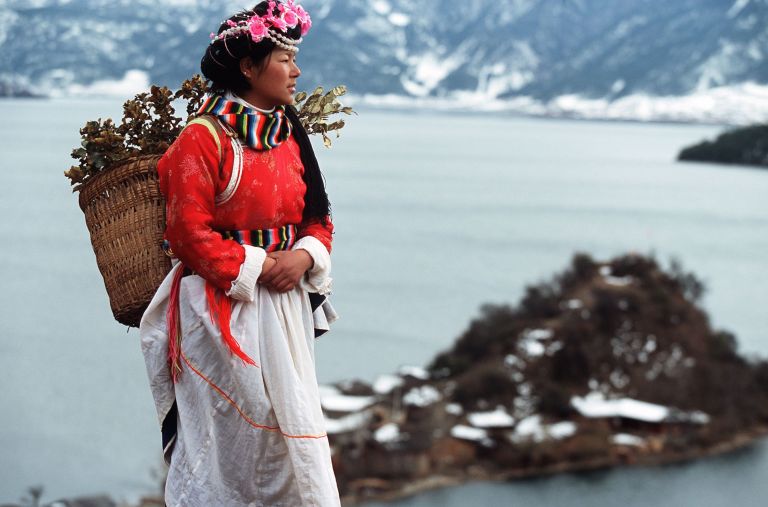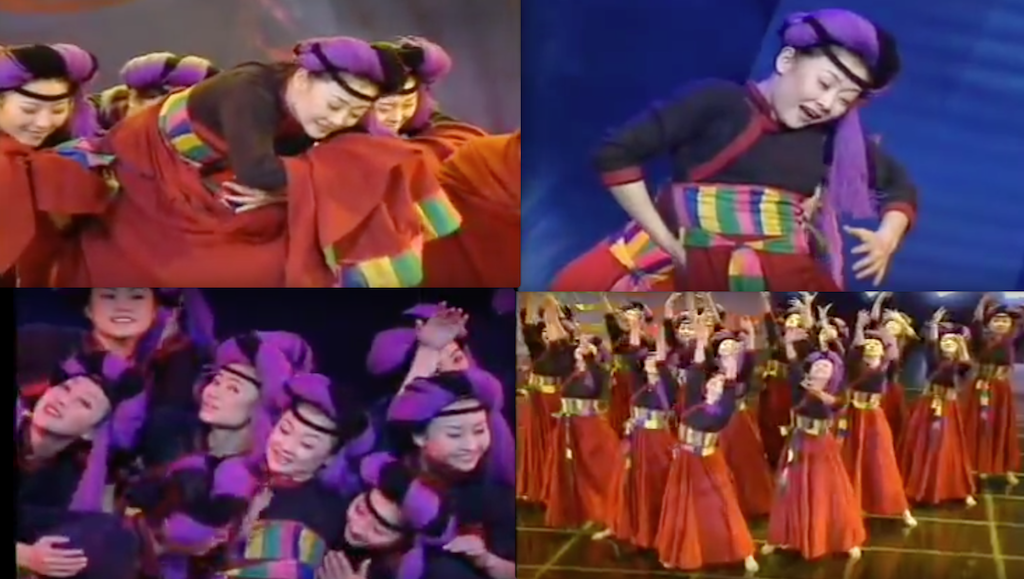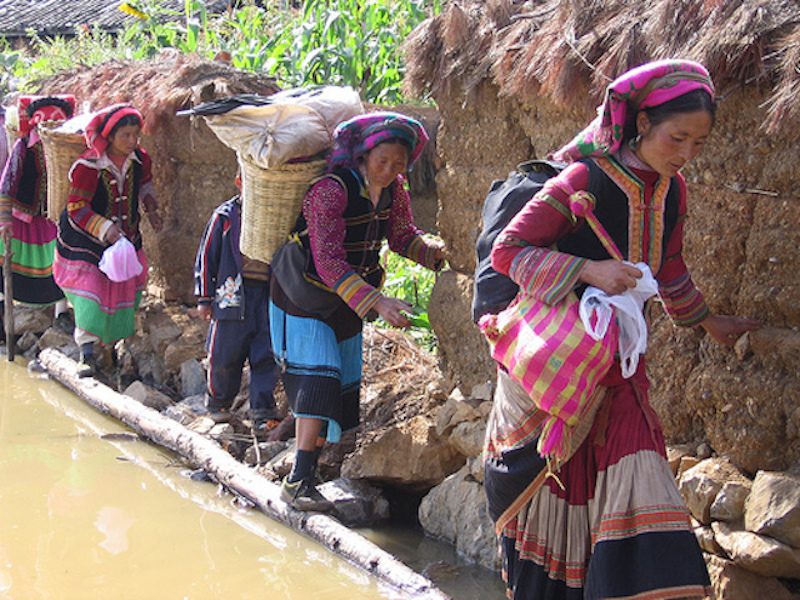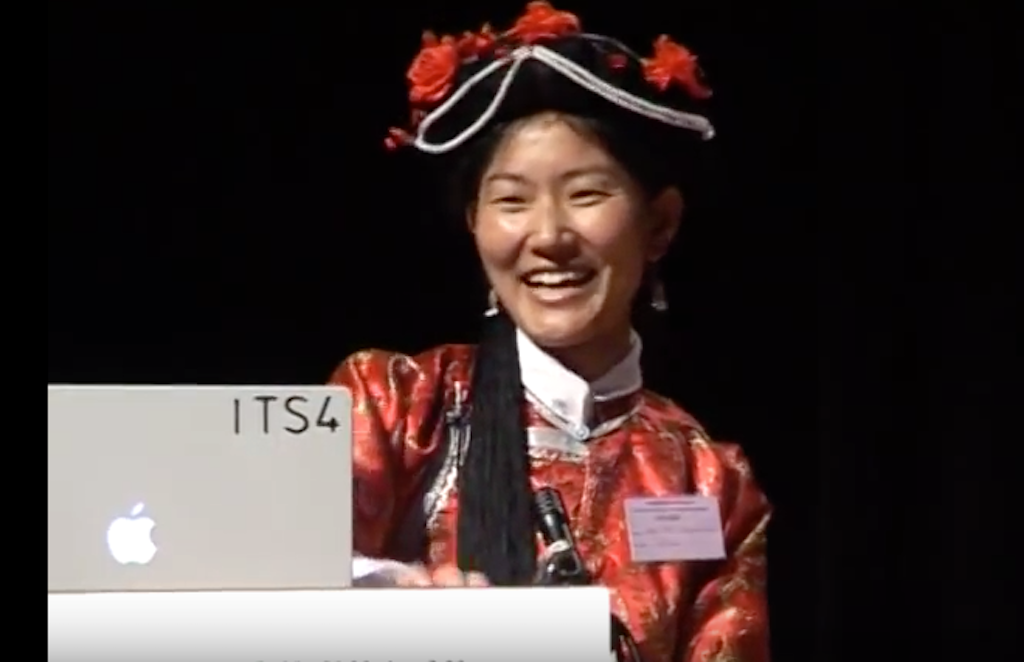THE MOSUO, CHINA
Deep in south-west China lies Lugu Lake, a place known as the Kingdom of Women. Here you’ll find the 40,000-strong Mosuo, one of the world’s best known matriarchal societies; a culture with no word for ‘father’ or ‘husband’, as Mosuo women do not marry. Property is handed down through the female line and there’s no stigma in not knowing who a child’s father is. Such matriarchal utopia does have drawbacks – curious visitors have descended upon the once-isolated region under the mistaken suggestion Mosuo women offer free sex. Sadly, some of the previously peaceful villages have been overrun with hotels, casinos, karaoke and even a red-light district.
www.mosuoproject.org
Living near the border of Tibet in the Yunnan and Sichuan provinces, the Mosuo are perhaps the most famous matriarchal society, with extended family in large households; at the head of each is a matriarch. Lineage is traced through the female side of the family, and property is passed down along the same matriline. Children are raised in the mother's households and take her name.
The Mosuo people are practising a custom called “walking marriage,” by which the men are visiting their beloved ones in their private bedrooms at night and return to their own mother-clan´s houses in the morning. There is no stigma against women having multiple partners. Children take their mother’s name and the men may not be involved in their upbringing. There’s no word in the local language for father or husband.
Women in the Mosuo wield much power and enjoy autonomy in several ways. They take care of labor in the selfsustainable economy at home, and historically the men have been involved in trade and are often away. The society is an agrarian culture, with annual incomes as low as US $150, as they are typically self-sufficient.
I guess it is the Peking Opera who has created this wonderful dance performance about the Mosuo women kind of lifestyle, but I am not sure of that. A friend of mine just discovered this video on youtube
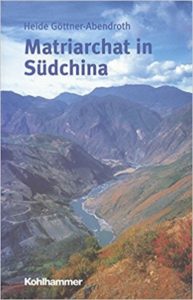
Since children always remain in the mother’s care, sometimes the father plays little role in the upbringing. In some cases, the father's identity is not even known. Instead, the male’s childrearing responsibilities remain in his own matrilineal household.
In many sites about the Mosuos its claimed that: "Mosuo women typically handle business decisions and men handle politics." But that must be some kind of misunderstanding, because what kind of "politics" is left to carry out in a selfsustainable society ruled by the principles of consensus based desicion-making practiced in meetings with the whole community or clan gathered, in which its up to the oldest and / or most thrustworthy matriarchs to make the desicions when the individuals in the group cannot agree?
Thereof has Heide Göttner Abendroth much to tell, who has lived with the Mosuos in order to make anthropolical studies of their practising a matriarchal way of living, in her book;
Matriarchat in Südchina: Eine Forschungsreise zu den Mosuo (German Edition)1998
"Das riesige Territorium, das heute "China" heißt, hat eine lange Geschichte der matriarchalen Gesellschaftsform.
Im äußersten Südwesten erstreckt sich die Provinz Yünnan, durchzogen von den parallelen Oberläufen des Salwen, des Mekong und des Jang tse kiang.
Diesen Flüssen entlang fand die Südwanderung matriarchaler Bergvölker in der Vergangenheit statt. Sie setzt sich bis in die Gegenwart fort. Heute umfassen diese Völker noch ungefähr 800 Stämme mit zusammen 15 Millionen Menschen, darunter auch die Mosuo. Registriert und als "Nationale Minderheit" von der Zentralregierung in Peking anerkannt sind davon nur wenige.
In jüngster Zeit wird diesen nicht-chinesischen Völkern nach den feindlichen Exzessen der sog. "Kulturrevolution" mehr wissenschaftliche Aufmerksamkeit und staatliche Fürsorge geschenkt. Wie sich ihre Situation heute darstellt, zeigt exemplarisch dieser Bericht einer Forschungsreise zu den Mosuo."
is a fascinating documentary that takes the relatively large field of films about the Moso people of China in a somewhat different direction than one might expect. Created by He Xiaodan, a filmmaker of Naxi ethnicity now living in Canada, The Fall of Womenland was partially funded by the National Geographic’s All Roads Film Project. The film uses first-person narration to give the viewer an intimate look at southwest China’s Moso villages —perhaps too intimate at times, as I discuss below. On a technical level, the careful crafting of storyline, sound, and visuals is clear, with the excellent cinematography by Martin Doepner making the documentary aesthetically pleasing.
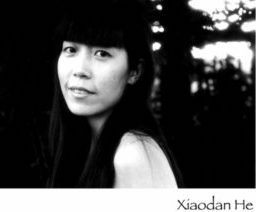
The film opens with footage from the Chinese Historical Ethnographic Film Series (Yang Guanghai 1965), interspersed with recollections from elderly Moso women living in Lige Village recalling past relationships. The Fall of Womenland discusses the practice that Moso call tisese in their language and zouhun in Chinese, a ‘walking marriage’ in which women receive their lovers at night, but each partner works and lives with their own natal family. The freedom of women like Bima, a woman from Lige profiled in the film, to choose their partners and play prominent roles in their birth households, is the purported basis for the ‘womenland’ described in the film’s title. Whether this society is truly a heaven for women or rather, a paradise for men, is a question explored throughout the film.
One of the strengths of this film is that He Xiaodan achieves a rapport with her subjects such that they willingly reveal intimate details of their lives at which other films only hint. For example, many documentaries mention prostitution as a dark side of tourism but lack strong visual evidence to accompany the narrator’s ominous words. Some simply show people walking down a dark street at night as they describe this new form of sexual exchange. The Fall of Womenland, by contrast, portrays the less formal prostitution targeted to locals, not tourists, through interviews with a young female bar manager and with young men who patronize these bars. The men both bemoan the lack of ‘traditional’ romantic partners who do not accept paid clients and describe their desires to taste ‘many flavors.’
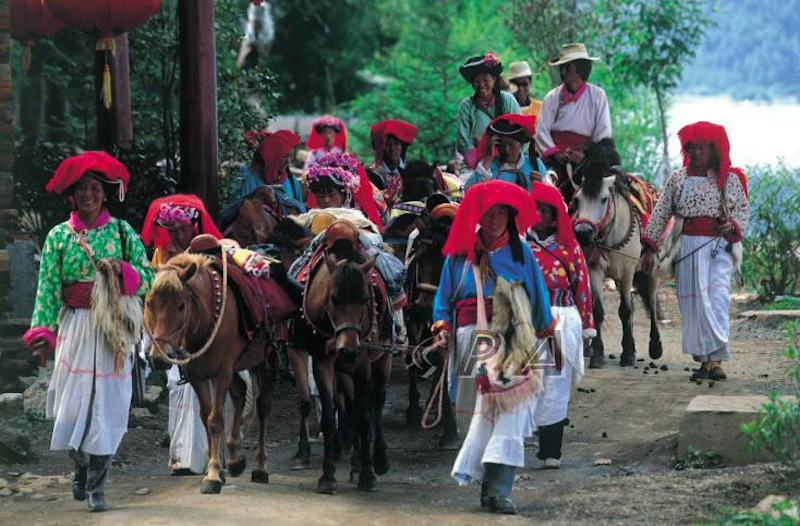
This intimate portrayal grows uncomfortable at times, as when the camera lingers at the open-air hot springs, raising questions about the ethics of filming nude bathers. Even if the filmmaker wants to emphasize the healthy relationship to sexuality espoused by Moso people, this practice bears a troubling resemblance to the historical film mentioned earlier, and others like it, that paid little attention to Moso modesty taboos and instead cared more about proving their theoretical points. In an otherwise respectful film, these scenes, along with the explicit images from the family planning office accompanied by slow-tempo music, seem out of place.
Overall, however, this film contributes an intriguing perspective: that of He Xiaodan trying to make sense of her own life and identity by examining changing identities in Moso communities. While I do not find convincing the argument that the life decisions of the film’s protagonists, or even the existence of prostitution, evoke the downfall of a ‘womenland,’ the film’s other strengths make this recommended viewing. It is best suited for high school and college students in courses exploring gender roles, ethnicity, and the politics of representation.
Author’s Note: In the interest of full disclosure, I have known He Xiaodan since 1999, when I acted in a feature film that she helped produce for the Yunnan Minority Film Studio. When she decided to make this film, I introduced her to Bima, one of the film’s protagonists. Thus I am not an entirely impartial reviewer.
Tami Blumenfield, PhD is a Visiting Assistant Professor of Asian Studies and International Studies at Portland State University. She received her doctorate in Sociocultural Anthropology from the University of Washington in 2010. Tami has done long-term ethnographic fieldwork in ethnically diverse regions of southwest China since 2001. Her dissertation, Scenes from Yongning: Media Creation in China’s Na Villages, examined the intersections of participatory media production, national media policy, ethnicity and tourism in Yunnan Province.
Article about the Mosuo people in the Guardian:
Is China's Mosuo tribe the world's last matriarchy?
Women from the Mosuo tribe do not marry, take as many lovers as they wish and have no word for "father" or "husband". But the arrival of tourism and the sex industry is changing their culture
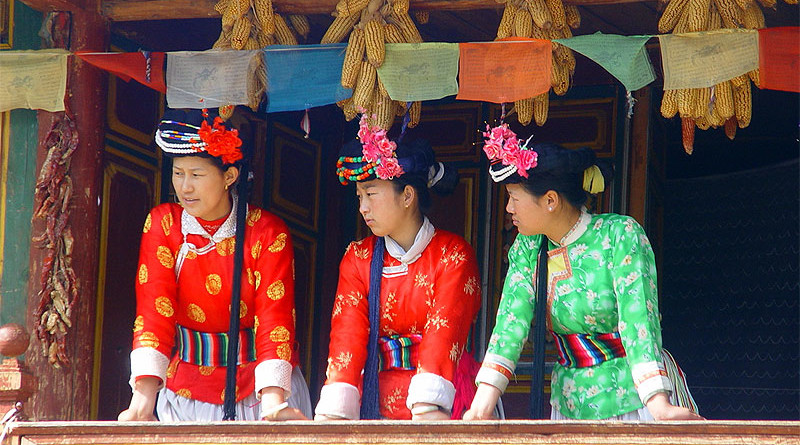
Warning! Lots of nonsense & mumbo jumbo here:
The matriarchal Mosuo of China enjoy communal living and “walking marriages”
By Mike Vago
This week’s entry: Mosuo
What it’s about: America has technologically averse subcultures within its borders, and China is no different. The Mosuo (who also call themselves the Na) are a population of roughly 40,000 who live near the Tibetan border, and have remained an agrarian society through China’s industrial revolution. The Mosuo are one of the world’s only matriarchal societies, and perhaps the only culture in the world that doesn’t include marriage, at least not as the rest of the world understands it.
Strangest fact: While the last few decades have seen a heated debate over the nature of marriage, as an older model of a woman effectively being her husband’s property has given way to a modern view of marriage being an equal partnership, the Mosuo subscribe to neither. Instead, the Mosuo practice “walking marriage,” in which there are no lifelong commitments and relationships are based solely on mutual affection, not family alliances, finances, inheritance, or even parental responsibilities.
Extended Mosuo families live together, with a matriarch ruling each family. Families live communally, and only adult women have their own bedrooms. Women can invite men to spend the night at their discretion (“walking” refers to the walk home in the morning), and as they’re not dependent on their romantic partners for financial support or a place to live, women can end relationships with virtually no strings attached. Any children a relationship produces are raised by their mother and her extended family, so while men have no rights or responsibilities to their biological offspring, they’re significantly involved in raising their nieces and nephews.
Biggest controversy: Outsiders often envision this setup as a nonstop orgy of promiscuity, but by and large walking marriage is closer to what Americans would call serial monogamy. Relationships tend to be lasting, sometimes lifelong, but if a couple loses interest in each other, they can simply split up, without cultural, financial, or parental obligations keeping them together in an unfulfilling relationship. Outsiders also assume children often don’t know who their biological fathers are, but there’s still a stigma to women not knowing who got them pregnant. Fathers are generally involved in their children’s lives, but not as day-to-day parental figures, and are less important than aunts and uncles.
Thing we were happiest to learn: The Mosuo’s lack of economic sophistication has in fact boosted their economy. People have mostly held onto an agrarian lifestyle, rejecting most modern technology (although television has crept into some homes), and their economy is still primarily based on bartering. (Pigs and pork are often used as currency.) But Han Chinese looking to observe a simpler lifestyle in action have made Yongning and Yanyuan, where most of the Mouso population live, into a thriving tourist destination.

Lake Lugu is a popular spot for Chinese tourists interested in visiting Mosuo culture. (Photo: Himangframe/Seihon Cho/Wikipedia/goo.gl/MsMWxc)
Thing we were unhappiest to learn: The Mosuo matriarchy probably came about as a way of keeping peasants in line. Historically, the Mosuo were ruled by nobility, who practiced a “parallel line of descent,” in which sons would inherit their fathers’ social status, and daughters would inherit their mothers’. Which meant a nobleman could marry a peasant, and his sons would retain his titles. But if a noblewoman did the same, her sons wouldn’t be nobility.
To further thwart peasant men from infiltrating the nobility, lower classes were strictly matrilineal—meaning property and status were inherited strictly through the mother—so that the nobility were the only men who actually had a family line and could pass on titles and land.
(My comment: Silly nonsense. Quite the contrary the main custom most probably have been matriarchal worldwide since times immemorial, and specially in these surroundings in China / Tibet / Nepal and Southeast Asia matriarchal societies have been common up until recent days and has most probably been the most widespread type of societies in the whole area, until it was inhabited by the patriarchal han peoples, who forced the peaceful matriarchal clans to move out into the fringes of the country high up in the mountains or out in the see to the islands in Southeast Asia and even further out in the Pacific Ocean. (See Göttner Abendroth: Matriarchal Societies, indigenous people across the globe)
Also noteworthy: While most Mosuo have adopted Buddhism, they historically practiced an animist religion called Daba. Daba centers on a female goddess (perhaps unsurprisingly), and the religion’s rites involve communing with ancestor spirits. However, the Chinese government had a longtime ban on Daba priests (which has since been lifted), and as a result, few of them remain, and most that do are elderly. Many Mosuo worry that when the priests are gone, the faith may disappear, and with it a significant aspect of their culture.
Best link to elsewhere on Wikipedia: While the Mosuo version of marriage is unique, it’s far from the only matrilineal culture. Wikipedia, naturally, has a list of matrilineal societies, encompassing cultures on every continent. In most cases, the cultures in question are ethnic minorities in their countries, but there are exceptions, like the Thai.
(My comment: More stupid nonsense. Walking marriage is practised by many matriarchal societies and is not unique for the Mosuos only.)
Further down the Wormhole: As matriarchies have been the exception in world culture, they have been the subject of anthropological fascination. The International Academy For Modern Matriarchal Studies has held conferences around the world in recent years, setting up shop in Texas in 2005.
(Yet more strange comments. No; Matriarchies has not been the exeption in the world culture and "The International Academy For Modern Matriarchal Studies" knows that for sure, and is not prone to some kind of "anthropological fascination" but quite the contrary reality for sure! )
Mike Vargo!
You may listen to this young Mosuo woman, Mike! Because she seems to be perfectly right that most of the things written about her people is completely wrong! As is even yours, not at least regarding your strange comment about the World Congress she is comitting here - in Texas: about "matriarchies as the exception in the world culture" to be "subject of their anthropological fascination". Such nonsence! Quite the contrary is the fascination just about how very shortlived patriarchy has been in contrast to the overwhelming world culture of matriarchy. Of course. Why should it be otherwhise? Where are your proofs?:
Mosuo Woman – Environment, Pullulation, and Views on Own Culture
A speech held by the Mosuo woman and student Hengede Danshilacuo
"I was born into a very typical Mosuo family. Mosuo is regarded as a unique ethnic group mostly because we follow a matriarchal system, where the common people live their whole lives in the maternal family home and never marry our lovers. Consequently, Mosuo family structure is very different from others.
As one of the very few Mosuo people who received higher education, I experienced various lives from very remote Mosuo village to modern Chinese cities, even life in United States. In my speech, I would like to introduce Mosuo family structure from my perspective through analyzing us Mosuo people's living environment, our life styles, belief, the practice of "walking marriage", to see how the current Mosuo family structure looks like and how it came into being. In the end, I will compare Mosuo family structure with the modern family structure in China to conclude what advantages and limitations lie in the Mosuo family structure. Finally, I will touch on my views on how to preserve Mosuo culture."
Click on the image »
Video by the Spanish anthropologist Anna Boyé:
Matriarchies - Land of daughters. Lake Lugu. China There is a place in China, on the shores of Lake Lugu, where daughters are well received, where the birth of a girl child is seen as a gift that makes the family larger and more powerful. Straddling the border between the Provinces of Yunnan and Sichuan, lives a small community, the Mosuo. Amongst the Mosuo, it is the women who administer the wealth, organise the work and issue the instructions. The matriarch distributes the tasks of the group according to the intelligence, ability and strength of each member. The figure of the 'husband' does not exist. The women share love with men who come to visit them at night. The fathers have no responsibility for the children, who always live within the maternal clan.
La familia de Lag Ladu. Los mosuo, China
La familia de Lag Ladu vive en la península de Lige. Su nombre significa pata de tigre. Ladu tiene 21 años y administra la posada de la casa. Cada año cultivan 30 mu de tierra y disponen de nueve cerdos, cuatro búfalos de agua, dos caballos de carga y diez pollos. El trabajo es duro y cuando se pone a pensar en el futuro, sueña con irse a la ciudad: “Sólo por un tiempo, a estudiar inglés y ordenador, pero después volver porque ahora aquí se puede ganar dinero con el turismo”, dice.
Ladu tiene un hermano de seis años, además de tres tías y tres tíos. A las hermanas de su madre las llama “ama” y siente igual afecto por ellas. Con sus tíos tiene mucha relación ya que son ellos los que se ocupan de su educación y de darle consejos. Su madre es la matriarca de la familia. “Organiza la faena, las ceremonias, decide la siembra y cuando hace falta riñe.” La opinión del tío mayor es importante. Ella y su hermano tienen padres diferentes. Su padre se despeñó hace años por la montaña, recogiendo hierbas medicinales y ella a veces va a cuidarle. “Pero él no se ocupa de mí. – afirma- Tiene sus propios sobrinos en casa de su madre. Respeto a mi padre, pero quiero más a mis tíos. Es la costumbre.”
Un hombre mosuo tiene que ejercer dos roles muy diferentes. El de tío en el clan propio, donde es respetado por todos y se ocupa de la educación de los sobrinos. Y el de padre, en la familia de la mujer a la que ama. “Donde no es libre de hacer lo que quiere”.
Creo que en la mente de cada uno, sólo cabe aquello que ha vivido o quizá otras experiencias semejantes. Lo diferente, a veces, resulta imposible de comprender. A mí estas costumbres de los mosuo me hacían reflexionar y analizar los estereotipos que construyen nuestra identidad y que determinan el comportamiento del hombre y de la mujer, pervivencias de un pasado que hay que enjuiciar, porque las tradiciones de esta sociedad mosuo constituyen la excepción que destruye una norma “naturalizada” e “universalizada”, donde los hombres tienen un papel dominante y fundamental en todas las áreas de la vida social. Del documental “Matriarcados: La tierra de las hijas”
Google Translate:
The family of Lag Ladu. The Mosuo, China
The family of Lag Ladu lives on the peninsula of Lige. Its name means tiger's paw. Ladu is 21 years old and runs the house inn. Each year they grow 30 mu of land and have nine pigs, four water buffaloes, two pack horses and ten chickens. The job is hard and when you think about the future, you dream of going to the city: "Only for a while, to study English and computer, but then come back because now here you can earn money with tourism," he says.
Ladu has a six-year-old brother, three aunts and three uncles. His mother's sisters call them "ama" and feel the same affection for them. With his uncles has a lot of relationship since they are the ones who are in charge of his education and of giving him advice. His mother is the matriarch of the family. "Organize the work, the ceremonies, decide the sowing and when it is necessary to quarrel." The opinion of the great uncle is important. She and her brother have different parents. Her father took off for years on the mountain, picking medicinal herbs and she will sometimes take care of him. "But he does not take care of me. He has his own nephews at his mother's house. I respect my father, but I love my uncles more. Its the tradition."
A Mosuo man has to play two very different roles. The one of uncle in the own clan, where it is respected by all and takes care of the education of the nephews. And the father, in the family of the woman he loves. "Where he is not free to do what he wants."
I think that in the minds of everyone, only what has lived or maybe other similar experiences. What is different is sometimes impossible to understand. To me these customs of the mosuo made me reflect and analyze the stereotypes that build our identity and that determine the behavior of man and woman, the survival of a past that must be judged, because the traditions of this society mosuo are the exception that destroys a norm "naturalized" and "universalized", where men have a dominant and fundamental role in all areas of social life. From the documentary "Matriarchies: The Land of Daughters"
M E N L I V E B E T T E R W H E R E W O M E N A R E I N C H A R G E
How does a matriarchy really work? Argentinian writer Ricardo Coler decided to find out and spent two months with the Mosuo in southern China. "Women have a different way of dominating," the researcher told SPIEGEL ONLINE.
